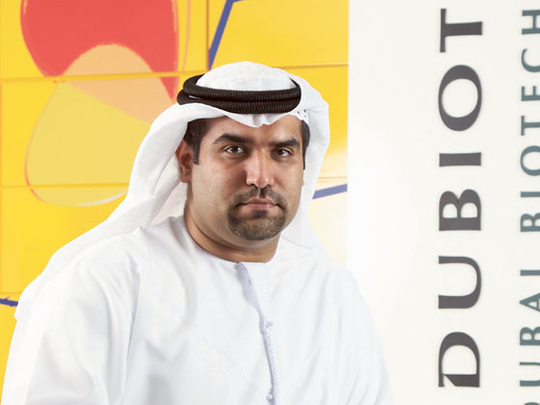
Dubai: The UAE's spending on medicines is expected to reach Dh4 billion in 2012, driven by health care investments and a growing population, a top official at the Dubai Biotechnology and Research Park (Dubiotech) told Gulf News.
Total drug expenditure was expected to increase 20 per cent this year, said Marwan Abdul Aziz Janahi, executive director of the Sciences Cluster at Tecom Investments. He estimates that spending on medicines in 2011 was Dh3 billion to Dh3.5 billion.
Drug consumption in the Mena region accounts for $9 billion (Dh33 billion) or about 1.5 per cent of the global total, according to Dubiotech. Janahi attributed the low figure to the failure of Arab governments to invest heavily in health care.
The Middle East's pharmaceutical market is valued at more than $12 billion and is expected to grow 10 to 15 per cent annually, according to Dubiotech.
The UAE is the second-largest consumer of pharmaceutical products in the Gulf after Saudi Arabia with the market valued at around $640 million.
Investment
It is also the second biggest capital investor in the pharmaceutical industry, relying heavily on drug imports, with about 90 per cent of its requirements coming from more than 72 countries.
Local drug manufacturers, however, have failed to fill the gap with import substitutions. Domestic production accounts for just 8 per cent of the market for medical and pharmaceutical supplies. This reason can be attributed to limited scientific research and innovation, and a reliance on reproducing generic drugs which are no longer patented, Janahi said.
"We are not driving innovation in the Arab world … our facilities are generally used for making generic drugs that can be reproduced. Generic drugs are only a small portion of the market," he said.
"We still have yet to create something home-grown. But this will change with time."
The obstacles to manufacturing innovative drugs locally are the low number of science graduates, a lack of investor appetite for scientific research that has long-term returns on investment, and regulation that supports innovation, he said.
Dubiotech, which was created to attract biotechnology companies to the emirate, currently has 90 companies in it, he said. It recorded 33 per cent growth in the number of registered companies in 2011 when 21 new companies came in and similar growth is expected this year, Janahi said.
Ten new companies joined Dubiotech from January such as Indian pharm-aceutical firm Wockhardt and German biotech company BYK.
The ratio of international versus local companies is 70 to 30 including global pharmaceutical firms such as Pfizer and Amgen.
Expansion
More Egyptian, Syrian and European companies have joined in the past year, he said. Dubiotech, has invested Dh1.5 billion in infrastructure.
Janahi, recently stepping into the executive director position at Dubiotech, aims to attract more local and international investment to the industry.
He also believes in bridging the gap between universities and the industry so that research can meet commercial needs.











